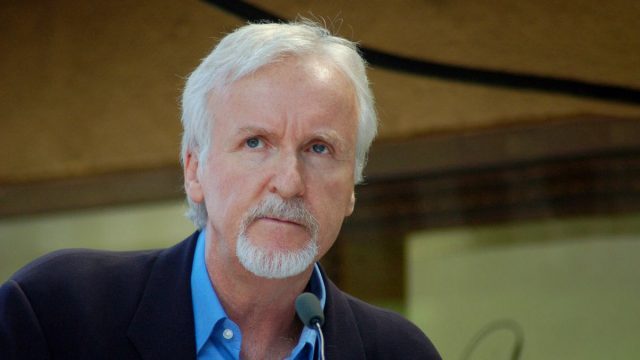James Camera is one of Hollywood’s most celebrated directors, best known for Titanic, and Avatar, two of the world’s top grossing films. He’s also been an evangelist of technological innovation in cinema production. Despite past skepticism, Cameron’s latest thoughts on VR show that he’s coming around to the idea, but still taking a pragmatic look.

Speaking during a recent interview surrounding the upcoming re-release of Terminator 2: Judgement Day 3D, Cameron notes that he’s well beyond the buzz of VR thanks to the virtual camera production techniques he employs.
Look I think… you know VR is kind of a yawn to me because I’ve been… our method of authoring the Avatar films… I work in a VR environment all day every day. When I finished with these interviews, I’m going to go work in VR for the rest of the day. Whether a new artform, a new form of cinema, that’s interactive can be created… I’m waiting for it to manifest.
Cameron clearly appreciates the difference between simple 360 video and more immersive VR video rendered in real-time, and suggests that most people in his circles are conflating the two. Clearly, he’d like to work with the latter.
I will tell you that if I wasn’t making the Avatar [sequels] and that wasn’t taking up so much of my bandwidth, I would be experimenting around with VR. Now what most people are calling VR right now isn’t VR. It’s really omnidirectional camera. And because you don’t really have any spatial control—any spatial movement is baked in—you [only] have the ability to look around in an environment, and that’s not true VR. [In] true VR, you can move around. And you have a lot of control over where you are spatially in the environment.
Though game engines are becoming increasingly capable, rendering a film with the visual complexity of Avatar isn’t possible today in real-time, Cameron notes. When that time comes, he’s ready to jump in.
But to do [real-time interactive VR] to a level of the kind of images we have in Avatar, I think that’s… several generations of technology away. It takes 100 hours of a massive render farm to do a single frame of an Avatar movie. So we’re decades away from being able to render at that level in real-time. Or maybe it’s a decade… whatever. But show me that and then I’ll say, let’s make movies in true VR.
Back in 2015, Cameron had a decidedly more skeptical take on VR tech for films, but it sounds like he’s becoming increasingly convinced at the tech’s potential as a film medium. And it’s true that we can’t render Avatar today in real-time, but between the latest advancements in real-time rendering and new technologies to bring cinema-quality assets to VR, we could hit a level of fidelity acceptable to Cameron sooner than he thinks.

![James Cameron: ‘If I wasn’t making Avatar [sequels] I would be experimenting with VR’](https://roadtovrlive-5ea0.kxcdn.com/wp-content/uploads/2017/08/james-cameron.jpg)